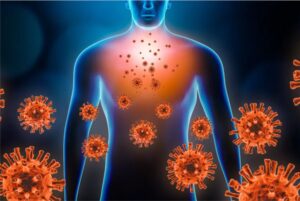Many health-conscious consumers have already cut back on hamburgers, steaks, and deli meats, often by swapping in poultry or seafood. Those protein sources are better than beef, and not just because they’re linked to a lower risk of heart disease, diabetes, and cancer. Chicken and fish are also better for the environment, as their production uses less land and other resources and generates fewer greenhouse gas emissions.
And choosing seafood that’s lower on the food chain — namely, small fish such as herring and sardines and bivalves such as clams and oysters — can amp up those benefits. “It’s much better for your health and the environment when you replace terrestrial food sources — especially red meat — with aquatic food sources,” says Christopher Golden, assistant professor of nutrition and planetary health at the Harvard T.H. Chan School of Public Health. But instead of popular seafood choices such as farmed salmon or canned tuna, consider mackerel or sardines, he suggests.
Why eat small fish?
Anchovies, herring, mackerel, and sardines are all excellent sources of protein, micronutrients like iron, zinc, and vitamin B12, and heart-healthy omega-3 fatty acids, which may help ease inflammation within the body and promote a better balance of blood lipids. And because you often eat the entire fish (including the tiny bones), small fish are also rich in calcium and vitamin D, says Golden. (Mackerel is an exception: cooked mackerel bones are too sharp or tough to eat, although canned mackerel bones are fine to eat).




